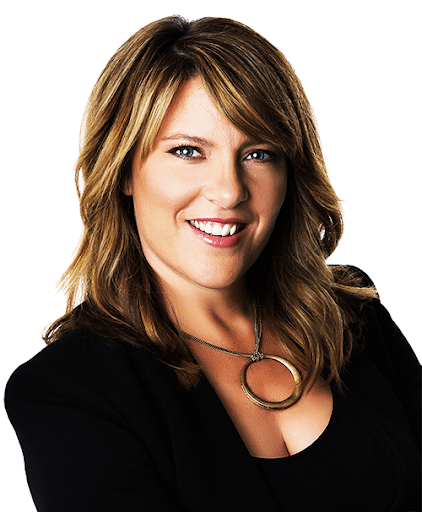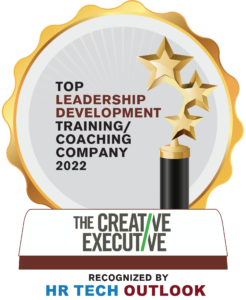
The Creative Executive: Jenny Daly.
Resume: Founded T-Group Productions, a reality based production company, in 2011. About 20 shows in various phases of production, including Mystery Diners (Food Network), Celebrities Undercover (Oxygen) and House of Food (MTV). Last year’s sales were over $40 million. Mom of two young kids.
Honors: In Variety’s 2013 Reality Impact Report, Jenny was listed as one of the most influential people in reality television, Top 100 Companies in the World by Realscreen, and Top 25 Reality Players in The Hollywood Reporter.
How to succeed (really fast)
I think the success I’ve reached is based on
really working hard and aggressively to ensure a show goes to series. I work my ass off to make sure that these shows come out great.I’ve been fortunate that the shows I have put to air have been very successful, and I’ve had returnable series after series based on a lot of the initial sales that I did. So with that, it allows you to build a company. Momentum brings momentum. (Tweet+Share) By having successful shows, other networks wanted to work with me. Based on that, I’ve created relationships. I have a great team.
I start with doing a great pilot to make sure the network loves it. And then from there I hope it gets a series pickup. Once a show gets picked up, I’m constantly refreshing the creative. No matter how many series I have going, it’s not like I’m going to stop creatively adding value and say, “OK, we have enough.” You constantly have to refresh, because at the end of the day people are fickle; they like change. So you have to constantly re-invent to ensure each season feels exciting and relevant.
Always go down the path that is most scary. (Tweet+Share) Whenever I step down into territories where I’m unsure of the future, they’ve proven to be the most successful for me. I don’t stick with what is secure and guaranteed; I’ve gone down the path of what is going to allow me to creatively grow and have an opportunity of a bigger, brighter future.
Fighting for your work
I’ve learned that the more I fight with a network because I’m not getting what I need or I’m being stripped of the elements to build a show successfully, the more it just doesn’t pay off in the end.
As someone who’s delivering product, I’m going to fight harder to say I don’t agree with my client. I’ve witnessed the backlash of this in a couple of my series. Had I thrown down on the sword and said no, maybe things would have been a little different for another season. I’ve found that not speaking up about the things I was concerned about definitely brought about a less successful outcome of a series.
You’re accountable
The best advice I’ve ever been given is you’re accountable and responsible for everything, no matter what, even if it wasn’t your fault and the P.A. did it. If it’s under your leadership, it’s your fault. So I take full responsibility for everything no matter what. At the end of the day, it’s my responsibility.
Dealing with failure
You can’t let one day’s failure be the vision of what the future’s going to lead to. (Tweet+Share) You have to take something that doesn’t work one day and just believe in yourself and that it’s going to work the next time. All you have is your own momentum, and it’s easy to spiral down a hole of “I’m failing and it’s not going to work.” There is much more bigger-picture guaranteed success if you know that a failure today does not necessarily mean one tomorrow. It’s how I get by.
Managing people and culture
Everyone has their own independent needs. You have to ensure that you read them in the right way in terms of how they feel or interpret a situation because people are motivated differently
The best part of it is when you walk through a company like mine and people look happy to be there, and people tell me “I love being a part of this,” “This community is awesome,” “I feel really excited to come to work each day.”
A lot of my decisions and choices come from the gut and also getting multiple points of view. I want to know why I should and shouldn’t. When it comes to the morale of everybody, I’m constantly feeling it out. It helps me figure out what’s working for us as a company and what’s not.
I’ve set up the culture this way because it matters to me. I genuinely care if people are going to be proud and excited and happy to be here. That’s the type of environment I encourage – that everyone has a voice, that you matter. Everybody here has contributed to the success of this company; it’s not just me. We’ve built a team that takes pride in what they do, and they’re accountable.
The realness of reality TV
You don’t create situations, or it comes off very fake. Those are the shows that don’t succeed. You have to work your stories off of what really happens in people’s lives, what’s really going on. Meaning that if you are in a fight, I’m going to make sure you talk about it, whereas you may not have had that talk in real life. But I’m not going to make up your fight; I’m not going to make it like you guys are angry because that will come off as horribly fake.
You can learn more about T Group Productions on Facebook and Twitter.
(Responses edited slightly for length and clarity)


